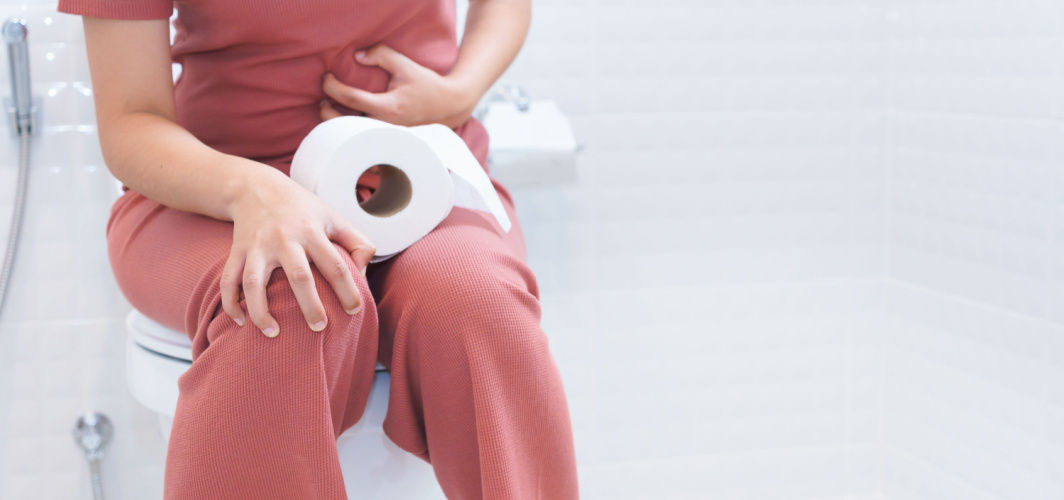Digestive Health
Regular Use Of Laxatives Can Increase Your Risk Of This Brain Disease By 50%
3 min read
By Apollo 24|7, Published on - 24 March 2023, Updated on - 21 June 2023
Share this article
0
0 like

Constipation is a common problem yet many people feel embarrassed to talk about their condition. Instead, they turn to over-the-counter laxatives sold in medical stores as they provide an easy solution for constipation relief and improve digestion. However, a recent study shows that people who use laxatives multiple days a week are much more prone to develop different forms of dementia. In this article, we are going to discuss the damage these laxatives can cause and if you should continue using them or not.
A 65% Increased Risk Of Dementia
The researchers from the U.K. Biobank analysed the healthcare data of over 500,000 participants with an average age of 56.5 years. After collecting the required data from the participants of various demographics they discovered that regular use of laxatives increased all-cause dementia risk by 51% and vascular dementia risk by 65% compared to non-users. It was also seen that all-cause dementia risk increased amongst the people who were using more than a single laxative type.
What Is The Exact Cause Leading To An Increased Risk Of Dementia?
According to several doctors, the exact mechanism linking laxatives to dementia is yet to be investigated properly. However, one possible explanation for this increased risk is that laxatives can negatively influence cognition by interrupting the balance between “good” and “bad” bacteria living in the gut microbiome. It can cause microorganisms to enter the brain crossing the blood-brain barrier. This can lead to a stroke which is one of the major risk factors for dementia.
Which Laxatives Lead To An Increased Risk Of Dementia?
There are two main types of laxatives available in regular medical stores; osmotic laxatives and stimulant laxatives.
- Osmotic laxatives tend to attract water, resulting in softer stools and more frequent bowel movements. It is usually the first line of laxatives as they are gentle but can take up to a couple of days to work.
- Stimulant laxatives, on the other hand, are more effective but harsher, therefore can irritate your gut.
While osmotic laxatives are believed to increase the risk of dementia significantly, it is advised not to use either of the two without the guidance of a gastroenterologist.
Should You Stop Using Laxatives?
It is not to say that people should eliminate laxatives from their lives altogether. However, they must minimise the use of such products as a lot of these laxatives can dehydrate your body. Dehydration is one of the biggest factors leading to constipation. Hence, your focus should be more on adopting a high-fibre diet along with increased water intake. Healthy lifestyle changes such as exercising, and meditating can also massively boost your gut health.
Several people end up misusing laxatives because they tend to opt for self-treatment for problems like constipation putting themselves at risk of acquiring dementia-related problems. If you are unaware of the side effects of a laxative, it is best to consult a medical practitioner before you end up buying them from your nearest pharmacy.
Consult Apollo's Expert Gastroenterologists
Medically reviewed by Dr Sonia Bhatt.
Digestive Health
Leave Comment
Recommended for you

Digestive Health
Understanding the Digestive Problems Caused by COVID-19
The declining second wave of COVID-19 has coincided with an increase in the number of patients, including children, reporting digestive or gastrointestinal (GI) problems.

Digestive Health
What Is a FODMAP Diet and How Does It Help Manage IBS?
A diet, particularly low in fermentable carbohydrates, generally referred to as FODMAPs, is recommended for people dealing with irritable bowel syndrome (IBS).

Digestive Health
Constipation: 5 Common Causes That One Should Know About
Constipation is a common problem that can affect people of any age. While most constipation cases are mild and can be easily addressed with exercise and diet changes, some may require medical treatments.
Subscribe
Sign up for our free Health Library Daily Newsletter
Get doctor-approved health tips, news, and more.
Visual Stories

Hidden Health Benefits in a Bowl of Salad
Tap to continue exploring
Recommended for you

Digestive Health
Understanding the Digestive Problems Caused by COVID-19
The declining second wave of COVID-19 has coincided with an increase in the number of patients, including children, reporting digestive or gastrointestinal (GI) problems.

Digestive Health
What Is a FODMAP Diet and How Does It Help Manage IBS?
A diet, particularly low in fermentable carbohydrates, generally referred to as FODMAPs, is recommended for people dealing with irritable bowel syndrome (IBS).

Digestive Health
Constipation: 5 Common Causes That One Should Know About
Constipation is a common problem that can affect people of any age. While most constipation cases are mild and can be easily addressed with exercise and diet changes, some may require medical treatments.
